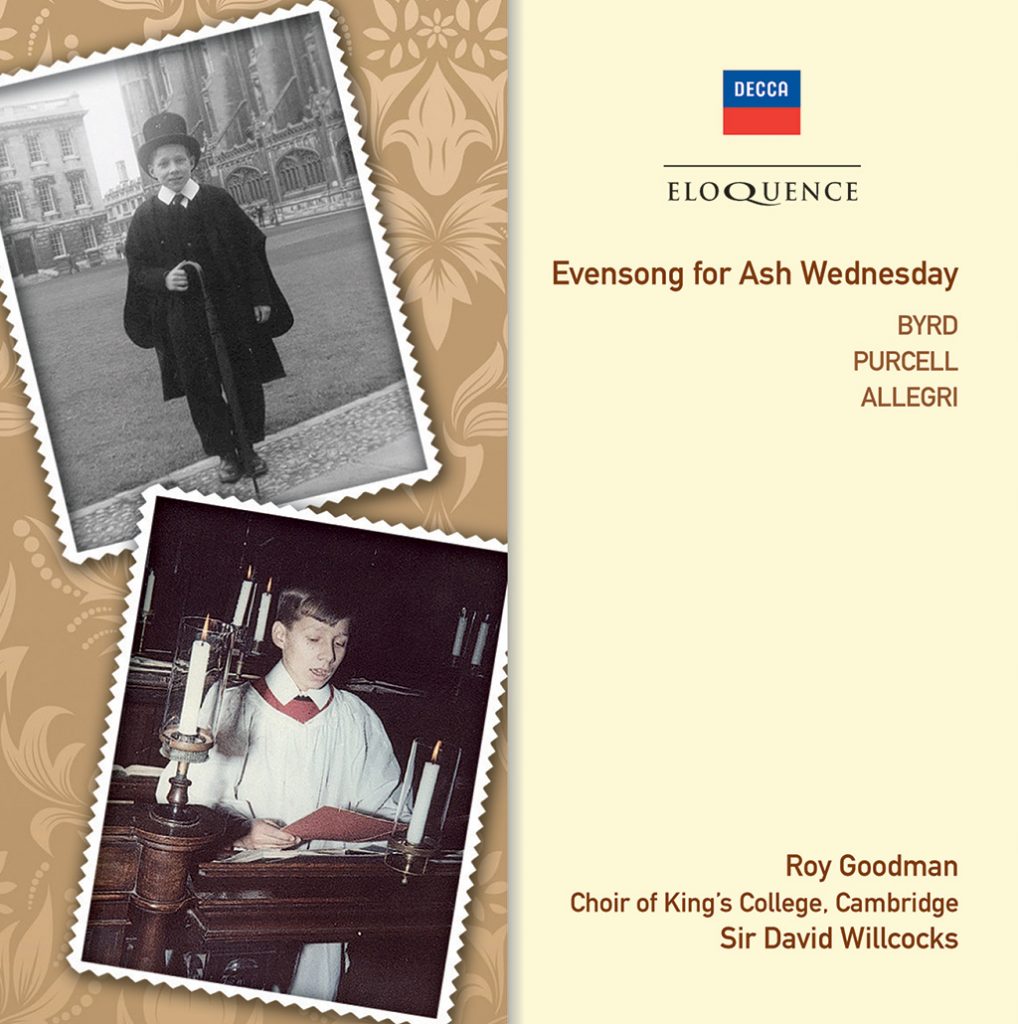
Roy Goodman’s recording of the Allegri Miserere (in David Willcocks’ edition, sung in English) was its first, made in March 1963. Although reissued countless times, the complete Argo recording from which it emanates – Evensong for Ash Wednesday – has never before been released complete. Consisting of hymns, psalms and readings, this is a regular event in the King’s College calendar. Roy Goodman – now, a famous conductor; then, a gifted treble – sang with the choir at the time and in the booklet note provides delightful reminiscences of his time with the choir and working with Sir David Willcocks. He recounts how the boy treble chosen to sing the solo part in the Allegri was appointed on the spot, as it were, and how he charged into the chapel after a game of rugby and was selected to record the treble solo. Goodman has also provided photographs of himself from that time for the cover and booklet of this release.
1 FARRANT: Hide not thou face from us, O Lord
2 FARRANT:Sentences
3 BYRD: Preces and Responses
4 CAMIDGE: Psalm 143: Hear my prayer, O Lord
5 CAMIDGE: Psalm 130: Out of the deep have I called unto Thee
6 First Lesson: Isaiah 57, 13-21
7 Lent Prose: Hear us, O Lord, have mercy upon us
8 CAUSTUN: Magnificat
9 Second Lesson: St. Luke 15, 10-32
10 CAUSTUN: Nunc Dimittis
11 The Apostles’ Creed
12 BYRD: The Lesser Litany
13 The Lord’s Prayer
14 BYRD: Versicles and Responses
15 Collects
16 PURCELL: Hear my prayer, O Lord
17 Prayers
18 ALLEGRI: Miserere (Psalm 51) (ed. Willcocks)
Roy Goodman, treble
Choir of King’s College, Cambridge
Sir David Willcocks
Recording Producer: Andrew Raeburn
Balance Engineer: Kenneth Wilkinson
Recording Location: Chapel of King’s College, Cambridge, UK, March 1963
‘The second half … is devoted to Allegri’s Miserere (Psalm 51, which in the Anglican rite is said in the Commination Service, between Matins and Holy Communion) … It is the piece which was jealously guarded by the Papal choir until Mozart created a sensation by writing it out from memory at the age of 14. The sensational thing about it nowadays is a recurring phrase descending from C to G above the treble stave, which the boys (or a solo boy?) bring off with the utmost aplomb. Fabulous is the only word for it.’ Gramophone
